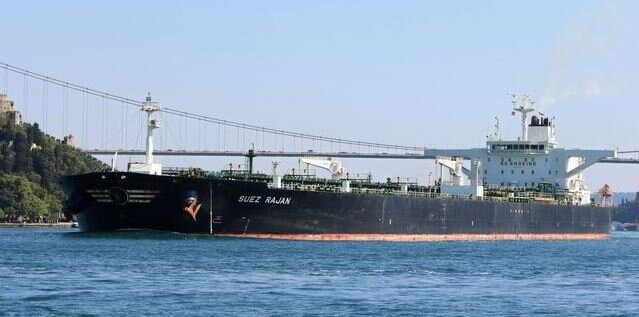Stolen Iranian oil stranded in Texas unclaimed amid fear of reprisal

TEHRAN - A report by The Wall Street Journal has revealed that at least 800,000 barrels of seized Iranian oil remains untouched in U.S. waters as no American company would risk buying them.
According to the WSJ, American firms are reluctant to buy the Iranian cargo which is worth $56mn as they fear potential reprisals from Iran. “Companies with any exposure whatsoever in the Persian Gulf are literally afraid to do it,” an executive involved in the matter has told the outlet. More people concerned with the issue have also told the WSJ that they don’t think the oil will ever be sold off.
All of the fuel is boarded on an oil tanker called Suez Rajan which was confiscated by the U.S. in April. The vessel seized near southern Africa anchored off the coast of Texas in May while the Greek owner was charged with sanctions evasion. A few days later Iran sized a Turkish-operated fuel tanker called Advantage Sweet in the Gulf of Oman which was carrying Kuwaiti oil for the second largest energy company in the U.S. Tehran said the tanker had collided with an unidentified Iranian vessel and was seized under a court order.
Washington has claimed to have hijacked oil tankers carrying Iranian oil several times, justifying the act by saying the ships have been flouting U.S. sanctions. The U.S. usually auctions off Iran’s stolen assets claiming it would use the money to pay “damages” to people that have allegedly received harm from the Iranian government. One of the figures who has infamously been awarded Iranian people’s stolen money in a U.S. court is Masih Alinejad. The anti-Iran campaigner has received or is due to receive 3.3 million dollars in “damages”.
Why are American companies afraid of provoking Iran?
About 30-percent of the world’s total oil consumption passes through the Strait of Hormoz in the Persian Gulf and Iran essentially has the entire region under its control. The concerns of the U.S. firms being asked to buy Iranian oil is in fact justified. Tehran has proven in the past that it is dead serious on protecting its interests and would do anything to reserve its assets. One of the things it has done is carrying out tit-for-tat seizure operations on the sea.
Apart from the confiscation of Sweet Advantage, the country has seized one British and two Greek vessels after similar moves by the two European states. It has also successfully shooed away American sea crafts that had got too close to Iranian waters. All three interactions did not lead to military conflicts because the Western sides caved to Iran’s demands. What should be taken into consideration here is that Iran has managed to maintain the upper hand while the U.S. has thousands of soldiers, destroyers, ships, submarines, and bombers deployed in in Bahrain, Kuwait, Iraq, Qatar, Saudi Arabia, the UAE and Oman. All that plus U.S. naval forces in the 5th Fleet have not been able to limit Iran’s freedom of action in any way.
U.S. sanctions down the drain
The latest report also brings to the limelight the U.S. government’s inability at imposing sanctions against Iran. More and more parties on the sea are afraid of standing in Iran’s way and would rather avoid any dispute with the country to protect their own interests. Iran’s military strength allowed the country’s oil exports to reach a five-year high this year and near the number of barrels it sold before Donald Trump had withdrawn from the JCPOA in 2018. The U.S. might now have to come up with a new strategy to stand against Iran as both its military capability and sanctions policy have been put to question by the Islamic republic.
Leave a Comment